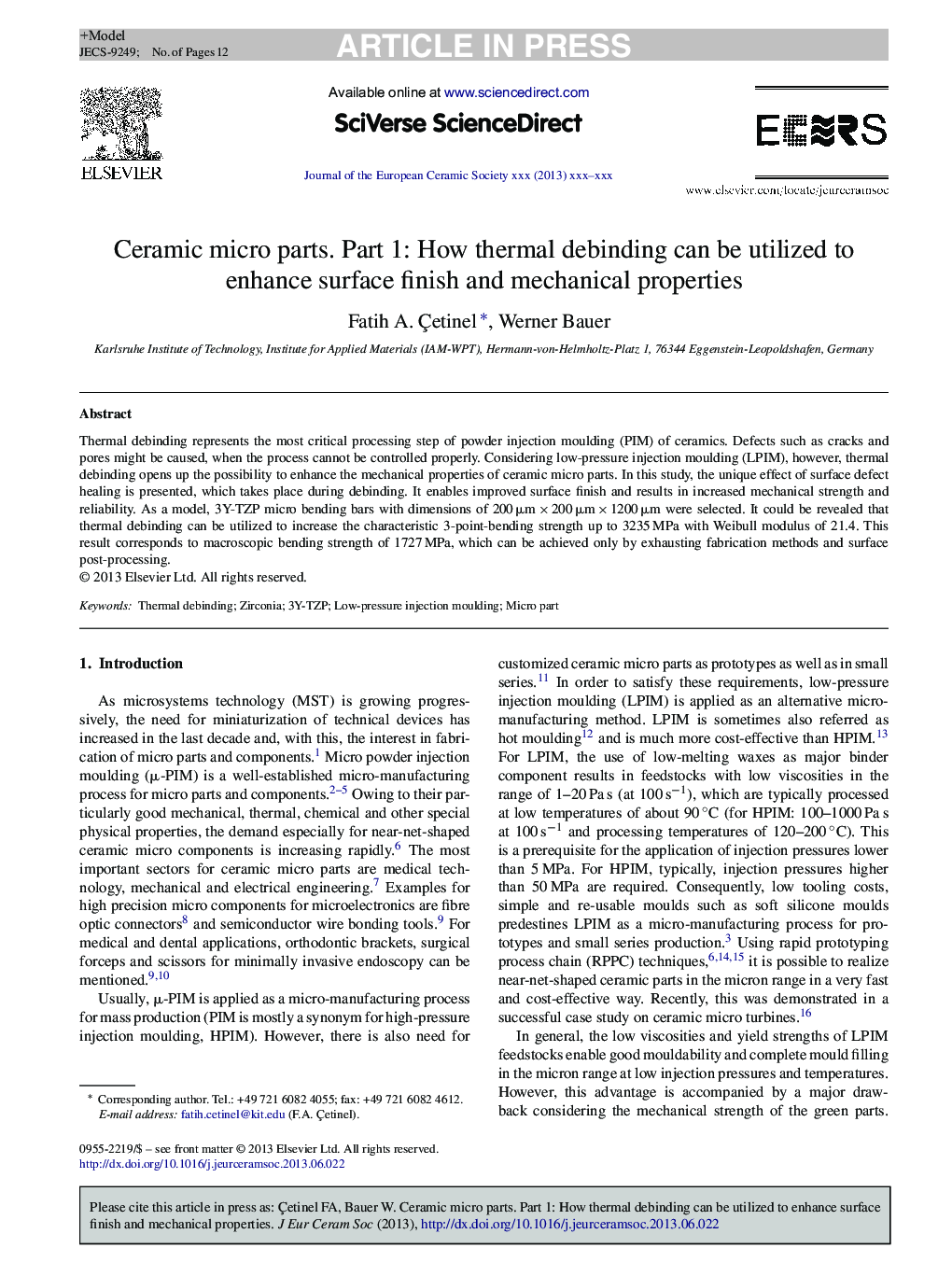| Article ID | Journal | Published Year | Pages | File Type |
|---|---|---|---|---|
| 7899097 | Journal of the European Ceramic Society | 2013 | 12 Pages |
Abstract
Thermal debinding represents the most critical processing step of powder injection moulding (PIM) of ceramics. Defects such as cracks and pores might be caused, when the process cannot be controlled properly. Considering low-pressure injection moulding (LPIM), however, thermal debinding opens up the possibility to enhance the mechanical properties of ceramic micro parts. In this study, the unique effect of surface defect healing is presented, which takes place during debinding. It enables improved surface finish and results in increased mechanical strength and reliability. As a model, 3Y-TZP micro bending bars with dimensions of 200 μm Ã 200 μm Ã 1200 μm were selected. It could be revealed that thermal debinding can be utilized to increase the characteristic 3-point-bending strength up to 3235 MPa with Weibull modulus of 21.4. This result corresponds to macroscopic bending strength of 1727 MPa, which can be achieved only by exhausting fabrication methods and surface post-processing.
Keywords
Related Topics
Physical Sciences and Engineering
Materials Science
Ceramics and Composites
Authors
Fatih A. Ãetinel, Werner Bauer,
